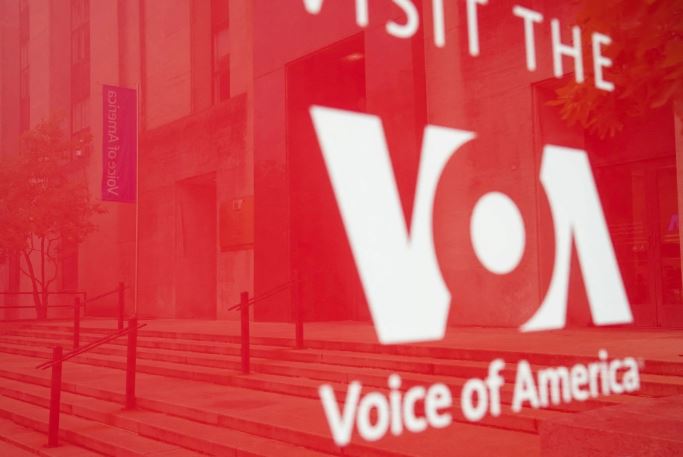The office of German public broadcaster Deutsche Welle (DW) is seen in Bonn on February 8, 2022. Members of the Turkish regulator RTÜK recently said that DW, VOA, and Euronews could have their websites blocked in Turkey if they fail to apply for licenses. (AFP/Ina Fassbender)
Istanbul, February 9, 2022 – Turkish authorities must allow all news outlets to work freely, and should not use licensing regulations to harass or censor international outlets, the Committee to Protect Journalist said Wednesday.
On Wednesday, February 9, two members of the Radio and Television Supreme Council, the government telecommunications regulator known as RTÜK, announced that the France-based outlet Euronews, the U.S. Congress-funded broadcaster Voice of America (VOA), and German public broadcaster Deutsche Welle (DW) must apply for broadcast licenses or else authorities would block their websites, according to news reports.
Those RTÜK members, İlhan Taşçı and Okan Konuralp, both members of the opposition Republican People’s Party, condemned the move in statements on Twitter.
A majority of RTÜK members ruled that, because Euronews, VOA, and DW host videos on their websites, they should be subject to the licensing requirements that regulate video broadcasters, Taşçı wrote.
Read also
“The Turkish media regulator’s reported ultimatum issued to Euronews, Voice of America, and Deutsche Welle is worrying and could severely limit their ability to work in the country,” said Gulnoza Said, CPJ’s Europe and Central Asia program coordinator, in New York. “News outlets should not have to guess at the government’s licensing requirements; the RTÜK must immediately disclose any changes affecting those broadcasters, and give them ample time to comply with new policies.”
Taşçı tweeted that such licensing requirements would be the RTÜK’s first use of its authority to regulate online news media since the regulator was empowered to regulate online broadcasts in 2019.
The regulator has not published any official announcement about the licensing requirements.
Deutsche Welle reported that it was aware of news reports about the decision, but had not received any formal notice. It said that, after the regulator’s decision was officially posted on its website, the outlets would have 72 hours to apply for licenses or else have their websites blocked.
CPJ emailed Euronews and VOA for comment, but did not immediately receive any replies.
Previously, in October 2020, the RTÜK required the music streaming service Spotify to apply for a license, and similarly gave the company 72 hours to comply.
Konuralp wrote that he believed the licensing requirements were “a move to put pressure on the international media.”
CPJ emailed RTÜK for comment but did not receive any response.
Committee to Protect Journalists
























































